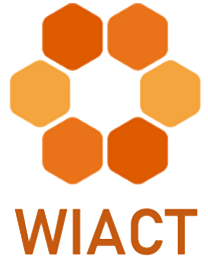Research Practice Partnership
A Research Practice Partnership
to Institute Indigenous Education in K-12 Grades
An RPP is a long-term collaboration and relationship between researchers and practitioners that is focused on improving practice in an area of societal concern, such as K-12 education in northern Ghana.
In collaboration with University of Arizona’s Graduate Programs in Human Rights Practice, WIACT has established a Research Practice Partnership (RPP) in rural northern Ghana’s Savannah Region focused on implementing indigenous education in our region as:
De France (2013) writes, “Research shows that unless indigenous students learn about the forces that shaped their history, values, customs and language, they will never be able to know their self-potential.”
Schools in this region have experienced issues with efficacy,
retention of teachers, and student achievement.

WIACT CEO Rashid Iddrisu (Wari) notes that Western education typical of K-12 schools is a holdover from the colonial era: Children are taught European history, philosophy, language and culture, rather than learning about their own heritage. Since schools prepare children for life and careers, and there are few Western-type jobs for young people to enter in (especially rural) Africa, it is no wonder that young people want to migrate to the European societies that schools have prepared them to join. If they do migrate—and survive the journey despite grave dangers en route--their disillusionment after arrival can be immense because most arrive only to find themselves living in the streets and subject to ongoing racism.

We established the RPP to address these issues: educating young people and expanding their sense of opportunities available at home is likely more sustainable, less costly, and more effective than securitization as an approach to deterring migration. The world is discovering what Canadian anthropologist Wade Davis asserts—that indigenous cultures have solutions to contemporary problems—but they need long-term, high-quality ethnographic and autoethnographic study, instructional approaches, and a good way to share them.
And “a good way to share them” is a small business opportunity.
We showed our RPP’s theory of change to Chief Harrison, a longtime educator in the region before he assumed a chief’s role in Buipe. He immediately offered that instituting indigenous education in K-12 grades would suggest additional career paths to students disinclined to go on to university education--a great need in the region. Young people could earn livelihoods through carrying forward a variety of cultural traditions and practices: traditional cuisines, fashion, crafts, doing community radio shows featuring indigenous traditions, performance arts, horticultural and medicinal plant cultivation, et al.

Our Vision

About our research partner: University of Arizona’s Graduate Programs in Human Rights Practice (HRTS) offers fully online courses designed to help students gain foundational knowledge, critical perspectives, research methodologies, and practical skills needed to advance human rights internationally. Students study cutting-edge issues in webinars with human rights practitioners from around the world. Classes support the work of NGOs, activists, government officials, and current students and faculty as they undertake projects to address real-world issues.
Rashid Iddrisu (Wari) has been a guest lecturer in several classes taught by Professor Mette Brogden (on economic migration, NGOs & human rights).
We are currently seeking grant funding to:
